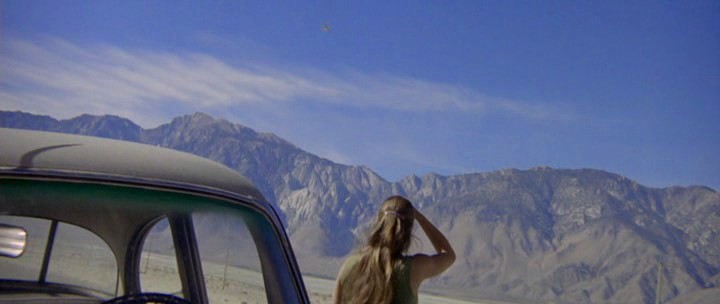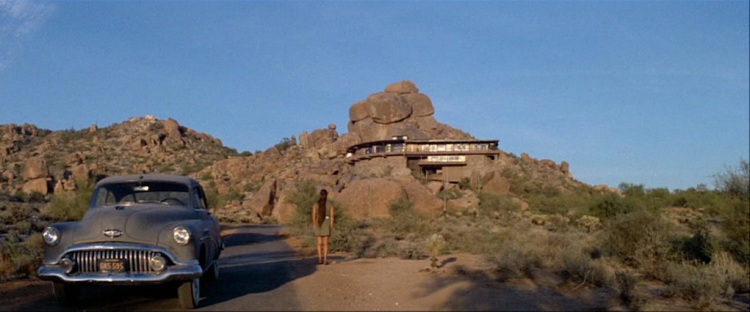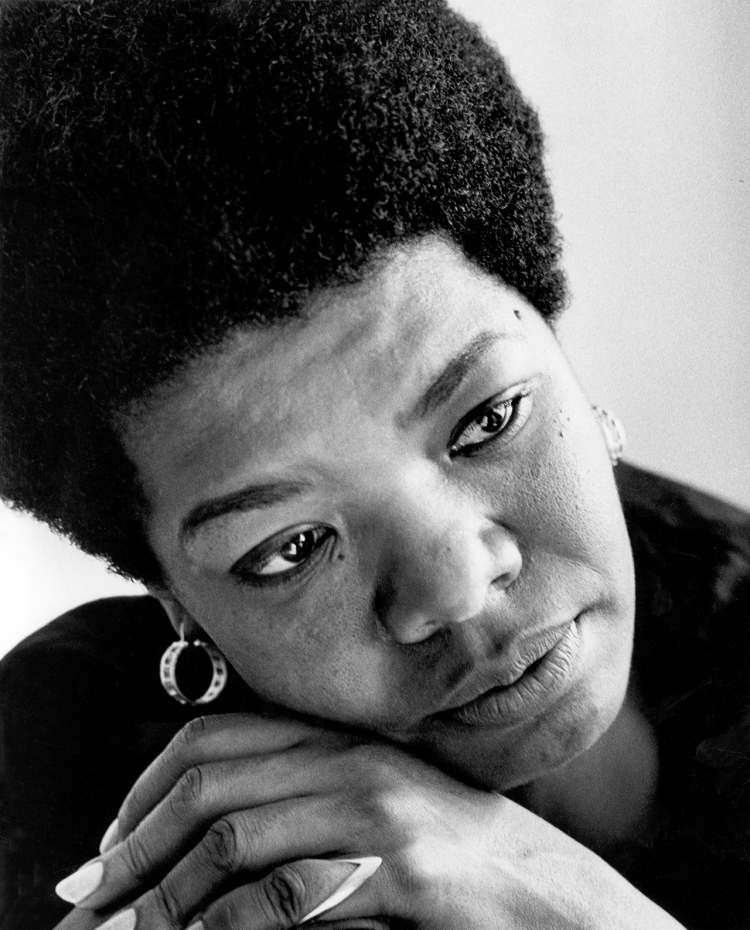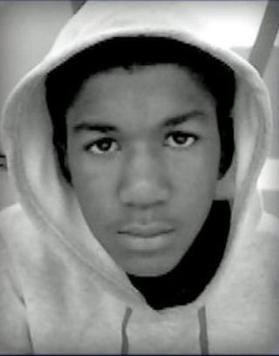
Reninghe, Belgium, 1916. (Bibliothèque Nationale de France)
August 1914
By Isaac Rosenberg

Reninghe, Belgium, 1916. (Bibliothèque Nationale de France)
August 1914
By Isaac Rosenberg











Michelangelo Antonioni, Scenes from Zabriskie Point, 1970 [Color Film Stills]
Albums
by Jules Laforgue
People have told me about life in the Far-West,
And my blood has groaned: “If only that were my country!…”
Without class in the old world, to live without faith or law,
Desperado! Over there, over there, I will be king!…
Oh! Over there to scalp myself of my European brain!
To swagger, to become once again a virgin antelope,
Without literature, a boy of prey, citizen
Of chance and spouting Californian slang!
A vague and pure settler, stockbreeder, architect,
Hunter, fisherman, gambler, up above the Pandectes!
___________________
Jules Laforgue, translation from Walt Whitman Among The French, Betsy Erkkila. New York: Princeton University Press, 1980.

Albums
On m’a dit la vie au Far-West et les Prairies,
Et mon sang a gémi : « Que voilà ma patrie!… »
Déclassé du vieux monde, être sans foi ni loi,
Desperado ! là-bas; là-bas, je serais roi!….
Oh là-bas, m’y scalper de mon cerveau d’Europe!
Piaffer, redevenir une vierge antilope,
Sans littérature, un gars de proie, citoyen
Du hasard et sifflant l’argot californien!
Un colon vague et pur, éleveur, architecte,
Chasseur, pêcheur, joueur, au-dessus des Pandectes!
Entre la mer; et les États Mormons! Des venaisons
Et du whisky! vêtu de cuir, et le gazon
Des Prairies pour lit, et des ciels des premiers âges
Riches comme des corbeilles de mariage!….
Et puis quoi ? De bivouac en bivouac, et la Loi
De Lynch ; et aujourd’hui des diamants bruts aux doigts
Et ce soir nuit de jeu, et demain la refuite
Par la Prairie et vers la folie des pépites!….
Et, devenu vieux, la ferme au soleil-levant,
Une vache laitière et des petits-enfants….
Et, comme je dessine au besoin, à l’entrée
Je mettrais: « Tatoueur des bras de la contrée! »
Et voilà. Et puis, si mon grand cœur de Paris
Me revenait, chantant : « Oh! pas encor guéri!
« Et ta postérité, pas pour longtemps coureuse !…. »
Et si ton vol, Condor des Montagnes-Rocheuses,
Me montrait l’Infini ennemi du comfort,
Eh bien, j’inventerais un culte d’Âge d’or,
Un code social, empirique et mystique
Pour des Peuples Pasteurs, modernes et védiques !….
Oh ! qu’ils sont beaux les feux de paille! qu’ils sont fous, Les albums ! et non incassables, mes joujoux !….
_____________
Jules Laforgue, La Revue Indépendante (April, 1888)

Caged Bird
By Maya Angelou
A free bird leaps
on the back of the wind
and floats downstream
till the current ends
and dips his wing
in the orange sun rays
and dares to claim the sky.
But a bird that stalks
down his narrow cage
can seldom see through
his bars of rage
his wings are clipped and
his feet are tied
so he opens his throat to sing.
The caged bird sings
with a fearful trill
of things unknown
but longed for still
and his tune is heard
on the distant hill
for the caged bird
sings of freedom.
The free bird thinks of another breeze
and the trade winds soft through the sighing trees
and the fat worms waiting on a dawn bright lawn
and he names the sky his own
But a caged bird stands on the grave of dreams
his shadow shouts on a nightmare scream
his wings are clipped and his feet are tied
so he opens his throat to sing.
The caged bird sings
with a fearful trill
of things unknown
but longed for still
and his tune is heard
on the distant hill
for the caged bird
sings of freedom.
_______________________
Maya Angelou, “Caged Bird” from The Complete Collected Poems of Maya Angelou (Random House Inc., 1994)

Romare Bearden, Tapestry “Recollection Pond” (The Metropolitan Museum of Art, New York, 1976)
Sympathy
By Paul Laurence Dunbar
I know what the caged bird feels, alas!
When the sun is bright on the upland slopes;
When the wind stirs soft through the springing grass,
And the river flows like a stream of glass;
When the first bird sings and the first bud opes,
And the faint perfume from its chalice steals—
I know what the caged bird feels!
I know why the caged bird beats his wing
Till its blood is red on the cruel bars;
For he must fly back to his perch and cling
When he fain would be on the bough a-swing;
And a pain still throbs in the old, old scars
And they pulse again with a keener sting—
I know why he beats his wing!
I know why the caged bird sings, ah me,
When his wing is bruised and his bosom sore,—
When he beats his bars and he would be free;
It is not a carol of joy or glee,
But a prayer that he sends from his heart’s deep core,
But a plea, that upward to Heaven he flings—
I know why the caged bird sings!
___________________
Paul Laurence Dunbar, “Sympathy” from Lyrics of the Hearthside (1899, rep. The Complete Poems of Paul Laurence Dunbar. New York: Dodd, Mead, & Co., 1913)


Ortelius, Nova Francia from “Typus Orbis Terrarum,” 1570, [detail]
The Map
by Elizabeth Bishop
Land lies in water; it is shadowed green.
Shadows, or are they shallows, at its edges
showing the line of long sea-weeded ledges
where weeds hang to the simple blue from green.
Or does the land lean down to lift the sea from under,
drawing it unperturbed around itself?
Along the fine tan sandy shelf
is the land tugging at the sea from under?
The shadow of Newfoundland lies flat and still.
Labrador’s yellow, where the moony Eskimo
has oiled it. We can stroke these lovely bays,
under a glass as if they were expected to blossom,
or as if to provide a clean cage for invisible fish.
The names of seashore towns run out to sea,
the names of cities cross the neighboring mountains
-the printer here experiencing the same excitement
as when emotion too far exceeds its cause.
These peninsulas take the water between thumb and finger
like women feeling for the smoothness of yard-goods.
Mapped waters are more quiet than the land is,
lending the land their waves’ own conformation:
and Norway’s hare runs south in agitation,
profiles investigate the sea, where land is.
Are they assigned, or can the countries pick their colors?
-What suits the character or the native waters best.
Topography displays no favorites; North’s as near as West.
More delicate than the historians’ are the map-makers’ colors.
_____________
From North and South, Houghton Mifflin, 1946
Poets as Roommates: nugget from the Elizabeth Bishop Paris Review Interview
INTERVIEWER
I heard a story that you once spent a night in a tree at Vassar outside Cushing dormitory. Is it true?
BISHOP
Yes, it was me, me and a friend whose name I can’t remember. We really were crazy and those trees were wonderful to climb. I used to be a great tree climber. Oh, we probably gave up about three in the morning. How did that ever get around? I can’t imagine! We stopped being friends afterwards. Well, actually she had invited two boys from West Point for the weekend and I found myself stuck with this youth all in—[her hands draw an imagined cape and uniform in the air]—the dullest boy! I didn’t know what to say! I nearly went mad. I think I sort of dropped the friend at that point . . . I lived in a great big corner room on the top floor of Cushing and I apparently had registered a little late because I had a roommate whom I had never wanted to have. A strange girl named Constance. I remember her entire side of the room was furnished in Scottie dogs—pillows, pictures, engravings and photographs. And mine was rather bare. Except that I probably wasn’t a good roommate either, because I had a theory at that time that one should write down all one’s dreams. That that was the way to write poetry. So I kept a notebook of my dreams and thought if you ate a lot of awful cheese at bedtime you’d have interesting dreams. I went to Vassar with a pot about this big—it did have a cover!—of Roquefort cheese that I kept in the bottom of my bookcase . . . I think everyone’s given to eccentricities at that age. I’ve heard that at Oxford Auden slept with a revolver under his pillow.
Willem de Kooning, Reclining Figure in Marsh Landscape, 1967
(anarchaeology of lichen)
by Liz Howard
In the towns I wear a sash monogrammed “Jacque Cartier”
and paddle through the desiccation of mute origin
if I wasn’t such a bâtarde I’d swell dissident
and beaded aquatic, take to water
tender stairwell of mares
limbic foals all misskwa nibowin
red death of my arms and horses and horses
lichen for the stomachs of caribou you track me in this herd
the city now a dénouement of the assimilative purge
symbiome: what it took for you to enter
history, a slackened joy
John Clare and I and 37 Claires well versed in literature
each have a simulation of a raven in the crooks of our arms
tepid swallows
be your own antecedent
where possible
or a coda to my bibliography of silence, a fur-lined oneirophrenia
ascetically-charged moral pastures and thought-systems of rivers
specious,
but not for lack of wolves
or inside of wolves or besides the point of wolves
also teleology
what cache of stone flaunts umbilical sinew and lesser hides?
in a whalebone summer I’ll hum, ‘que sera, sera’ on the tundra
just below this earthen burial urn is your
mammalian warmth place a hand
to tend it the
velveteen recognition
slides down
the artifact
of calcified desire
where memento and trajectory vistas assemble subthalamic
or post-coital alluvium—all dressy—take the small bend of it
for memory/stamen/intoxicate
no sister flower could ever recover this
—selfsame pleasure.
__________________
Liz Howard is a poet from northern Ontario, currently based in Toronto. Her work has appeared in Misunderstandings Magazine and online at Matrix Magazine as part of the New Feminisms Supplemental. In 2009 she was shortlisted for the LitPop Award for poetry. She is the recipient of a Toronto Arts Council grant for poetry. Skullambient, her first chapbook, is forthcoming from Ferno House Press. On May 7th and 8th, 2014 she will be in Princeton along with fellow Canadian poets, Mat Laporte, Erin Robinsong and Aisha Sasha John, for A Rhythm Party, a reading series and workshop exploring the intersection of hospitality and poetics. The poem (anarchaeology of lichen) will be includded in Skullambient and can be found online at Ditch Poetry.

George Herriman, Krazy Kat [detail from comic strip], 1913 – 1944.
Fear of an Empty Life
by Jennifer Moxley
All the long imprint of a smooth utterance – a single adhesive
word slips away, snuggles beside the accusatory newborn
thought which, barking from lack of care, might trap in a moment
of serious sorrow me and my dirty heart, we twist the arm
of friendship ’til the ancient swing by the nonchalant body
is rewritten as a trembling, angry, grudge. Split along
the physique axis of wrested love and that human pulp
the wealthy mock, old need, a shuffle from the coffin lip
silences mind into fiddlehead body, bobbing in the fifty-fifty
sheets, weighty yet so pitiful it cannot coax solution – Darwin
was a fool, conductor of teeming masses, I see them now
in sedimentary patterns, crushed umber colors and a hint of green.
I am content when I do not think the disclosure of love is a
weakness, I imagine myself invincible like a bully who sees
in the fear he coerces from his weaker brother the only version of
truth he’ll believe – satisfied sleep. I awake drenched, the sweat
between my breasts which are so small they cannot touch is slick
as mucous. The surface of beauty is awful and enormous to all of us
who are left behind and yet we seek our coordinates, willfully
follow them just the same as the moon might seem from certain
angles to willfully follow the earth. Choking pink ribbon of thought
fails the ferry crossing. Who cannot push life-sustaining rationalization
away without remembering, as though an error of judgment,
the callow power of preservation turned to resentment of the race.
It cannot, no matter, in verse, be real. Fucked up beauty
subtracts the awkward ugly plain ache of tripped-up memory stores
where I see you as a taut wing of fragile older skin whose pride
of effort flaps in an attempt to fly amidst its own disintegrating
structure, a sight so ridiculous that all but the buried are unable
to suppress their laughter and turn away. That’s an image hovering
above me here where there is still in my imagination a cool carpet
underfoot, a flavor of drug’s seductive distances, the expense of
early exits but no gun, never a gun. That weapon steals time for it
knows not what’s in a minute. Tiny blindfold box of selfish stomach,
parasite life, the measure of a second is insufficient
to leave you behind, you and all your crippling indifference.
______________
Jennifer Moxley is the author of five books of poetry, most recently Clampdown (Flood 2009), a book of essays, and a memoir. In addition, she has translated three books from the French. Her poems have been included in two Norton Anthologies, Postmodern American Poetry and American Hybrid. Her book The Sense Record (2002) was picked as one of the five best poetry books of the year by both Stride magazine (UK) and Small Press Traffic (US). In 2005 she was granted the Lynda Hull Poetry Award from Denver Quarterly. Her poem “Behind the Orbits” was included by Robert Creeley in The Best American Poetry 2002. She is Professor of Poetry and Poetics at the University of Maine. On Wednesday April 16th at the invitation of Orlando Reade, Jennifer Moxley gave a reading of new poems with Andrea Brady in McCosh 40. “Fear of an Empty Life” appears in Jacket Magazine no6.

Jean-Michel Basquiat, ‘Cassius Clay’, (Gagosian Gallery) 1982.
The Mare of Money
By Roger Reeves
Another dead mare waits
in the shoals of some body
of water, waits to be burden,
borne into a foaming ocean,
where it might become food
for whales, or, simply empty
signifier—hair latched to the sea’s undulation
like Absalom’s beauty
caught in the playful branches
of a tree desiring union,
entanglement, thick confusion—
but not this mare;
she does not get the luxury
of a lyric—a song that makes our own undoing
or killing sweet even as we go down
into the fire to rise as smoke.
This horse must lie, eyes open,
amongst the stones and fresh water
crawfish in Money, Mississippi,
listen to the men’s boots break the water
as they drop a black boy’s body near her head,
pick him up, only to let him fall again
there: bent and eye-to-eye with her
as though decaying is something
that requires a witness
—as though the mare might say:
on Tuesday after the rain fell,
the boy’s neck finally snapped
from the weight of the mill fan;
he never looked at me again.
Or the boy might say:
No more. They part
here—the boy’s body found
in another man’s arms, carried back
to town, as the horse says nothing
because horses don’t speak, besides
this one’s dead.

Trayvon Martin (1995 – 2012) [undated screen capture]
_______________________
Roger Reeves‘s poems have appeared in journals such as Poetry, Ploughshares, American Poetry Review, Boston Review, and Tin House, among others. He was awarded a 2013 NEA Fellowship, Ruth Lilly Fellowship by the Poetry Foundation in 2008, two Bread Loaf Scholarships, an Alberta H. Walker Scholarship from the Provincetown Fine Arts Work Center, and two Cave Canem Fellowships. He earned his PhD at the University of Texas-Austin and is currently an assistant professor of poetry at the University of Illinois, Chicago. “The Mare of Money” appears in his first book King Me (Copper Canyon Press, 2013).
David Wojnarowicz, from Arthur Rimbaud in New York, 1978-79 (LLC/PPP Editions, 2004)
Genie
By Arthur Rimbaud, trans. John Ashbery
He is affection and the present since he opened the house to foaming winter and the hum of summer, he who purified drink and food, he who is the charm of fleeting places and the superhuman deliciousness of staying still. He is affection and the future, strength and love that we, standing amid rage and troubles, see passing in the storm-rent sky and on banners of ecstasy.
He is love, perfect and reinvented measurement, wonderful and unforeseen reason, and eternity: machine beloved for its fatal qualities. We have all experienced the terror of his yielding and of our own: O enjoyment of our health, surge of our faculties, egoistic affection and passion for him, he who loves us for his infinite life
And we remember him and he travels. . . And if the Adoration goes away, resounds, its promise resounds: “Away with those superstitions, those old bodies, those couples and those ages. It’s this age that has sunk!”
He won’t go away, nor descend from a heaven again, he won’t accomplish the redemption of women’s anger and the gaiety of men and of all that sin: for it is now accomplished, with him being, and being loved.
O his breaths, his heads, his racing; the terrible swiftness of the perfection of forms and of action.
O fecundity of the spirit and immensity of the universe!
His body! The dreamed-of release, the shattering of grace crossed with new violence!
The sight, the sight of him! all the ancient kneeling and suffering lifted in his wake.
His day! the abolition of all resonant and surging suffering in more intense music.
His footstep! migrations more vast than ancient invasions.
O him and us! pride more benevolent than wasted charities.
O world! and the clear song of new misfortunes!
He has known us all and loved us all. Let us, on this winter night, from cape to cape, from the tumultuous pole to the castle, from the crowd to the beach, from glance to glance, our strengths and feelings numb, learn to hail him and see him, and send him back, and under the tides and at the summit of snowy deserts, follow his seeing, his breathing, his body, his day.
_____________________________________
From Illuminations, John Ashbery, New York: W.W. Norton, 2012

Ray Atkeson, from Northwest Heritage: The Cascade Range, 1969
by William Stafford
Today outside your prison I stand
and rattle my walking stick: Prisoners, listen;
you have relatives outside. And there are
thousands of ways to escape.
Years ago I bent my skill to keep my
cell locked, had chains smuggled to me in pies,
and shouted my plans to jailers;
but always new plans occurred to me,
or the new heavy locks bent hinges off,
or some stupid jailer would forget
and leave the keys.
Inside, I dreamed of constellations—
those feeding creatures outlined by stars,
their skeletons a darkness between jewels,
heroes that exist only where they are not.
Thus freedom always came nibbling my thought,
just as—often, in light, on the open hills—
you can pass an antelope and not know
and look back, and then—even before you see—
there is something wrong about the grass.
And then you see.
That’s the way everything in the world is waiting.
Now—these few more words, and then I’m
gone: Tell everyone just to remember
their names, and remind others, later, when we
find each other. Tell the little ones
to cry and then go to sleep, curled up
where they can. And if any of us get lost,
if any of us cannot come all the way—
remember: there will come a time when
all we have said and all we have hoped
will be all right.
There will be that form in the grass.
Our Ground Time Here Will Be Brief
by Maxine Kumin
Blue landing lights make
nail holes in the dark.
A fine snow falls.
We sit
on the tarmac taking on
the mail, quick freight,
trays of laboratory mice,
coffee and Danish
for the passengers.
Wherever we’re going
is Monday morning.
Wherever we’re coming from
is Mother’s lap.
On the cloud-pack above, strewn
as loosely as parsnip
or celery seeds, lie
the souls of the unborn:
my children’s children’s
children and their father.
We gather speed for the last run
and lift off into the weather.
_____________________
“Our Ground Time Here Will Be Brief,” Maxine Kumin: Selected Poems, 1960-1990 (W.W. Norton, 1997) You can listen to a reading of this poem through The Poetry Foundation here.
You must be logged in to post a comment.